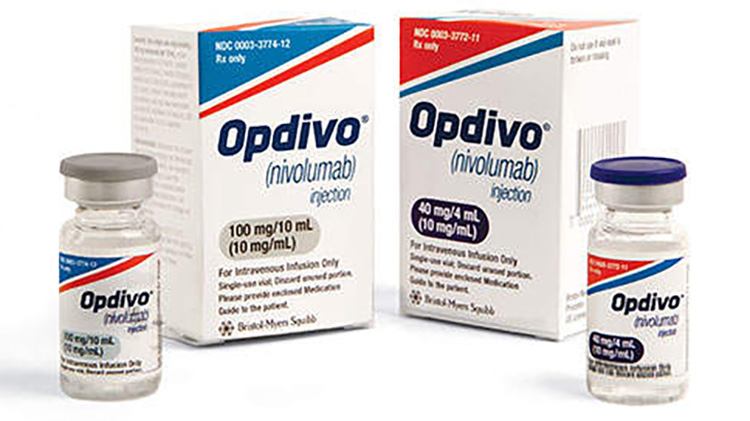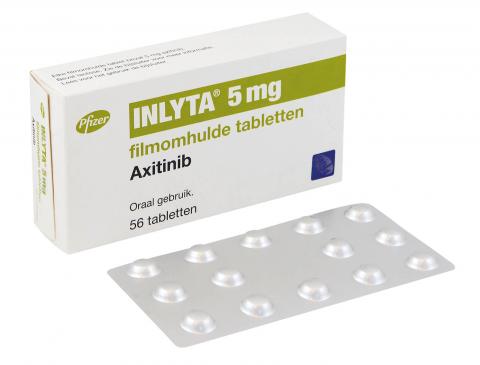Opdivo (Nivolumab) vs Inlyta (axitinib)
Opdivo (Nivolumab) vs Inlyta (axitinib)
Opdivo (nivolumab) is an immunotherapy drug that works by blocking the PD-1 pathway, which enhances the body's immune response against cancer cells. In contrast, Inlyta (axitinib) is a tyrosine kinase inhibitor that targets specific proteins to prevent the growth of cancer cells, particularly in kidney cancer. When deciding between the two, it is important to consider the type of cancer, the stage of the disease, potential side effects, and the overall treatment plan as discussed with an oncologist, as Opdivo is commonly used for a variety of cancers including melanoma, lung, and kidney cancers, while Inlyta is specifically indicated for advanced renal cell carcinoma.
Difference between Opdivo and Inlyta
| Metric | Opdivo (Nivolumab) | Inlyta (axitinib) |
|---|---|---|
| Generic name | Nivolumab | Axitinib |
| Indications | Various types of cancers, including melanoma, lung cancer, kidney cancer, bladder cancer, head and neck cancer, and others. | Advanced renal cell carcinoma (kidney cancer) after failure of one prior systemic therapy. |
| Mechanism of action | PD-1 receptor blocker that enhances the immune response against cancer cells. | Tyrosine kinase inhibitor that targets VEGF receptors, which decreases angiogenesis and tumor growth. |
| Brand names | Opdivo | Inlyta |
| Administrative route | Intravenous infusion | Oral |
| Side effects | Fatigue, rash, musculoskeletal pain, pruritus, diarrhea, nausea, and others. | Diarrhea, hypertension, fatigue, decreased appetite, nausea, dysphonia, hand-foot syndrome, weight decrease, vomiting, and others. |
| Contraindications | Patients with hypersensitivity to nivolumab or any of its excipients. | Patients with hypersensitivity to axitinib or any of its excipients. |
| Drug class | Immune checkpoint inhibitor | Tyrosine kinase inhibitor |
| Manufacturer | Bristol-Myers Squibb | Pfizer |
Efficacy
Overview of Opdivo (Nivolumab) and Inlyta (Axitinib) in Kidney Cancer
Opdivo (nivolumab) and Inlyta (axitinib) are two medications that have shown efficacy in the treatment of kidney cancer, specifically advanced renal cell carcinoma (RCC). Nivolumab is a programmed death receptor-1 (PD-1) blocking antibody that enhances the immune system's ability to fight cancer, while axitinib is a tyrosine kinase inhibitor that targets vascular endothelial growth factor receptors (VEGFRs), which are involved in the growth of blood vessels that supply tumors. When used in combination, these drugs can provide a synergistic effect that improves patient outcomes.
Efficacy of Opdivo and Inlyta in Clinical Trials
Clinical trials have demonstrated the efficacy of the combination of nivolumab and axitinib in patients with advanced RCC. The pivotal phase 3 CheckMate 214 trial showed that the combination significantly improved overall survival and objective response rates compared to sunitinib, a standard treatment for RCC. Patients treated with nivolumab and axitinib had a higher response rate and a longer duration of response, indicating a potential for long-term benefit in some patients.
Impact on Progression-Free Survival
Progression-free survival (PFS) is a critical endpoint in cancer trials as it indicates the length of time during and after treatment that a patient lives with the disease without it getting worse. The combination of nivolumab and axitinib has been shown to extend PFS in patients with advanced RCC. This suggests that the combination not only helps to shrink tumors but also to maintain disease control for a longer period compared to some other available therapies.
Considerations for Treatment with Opdivo and Inlyta
While the combination of Opdivo and Inlyta has shown promise in the treatment of kidney cancer, it is important to consider individual patient factors when evaluating treatment options. The efficacy of these medications can vary based on the patient's health status, the extent of disease, and previous treatments. Physicians must weigh the benefits of treatment against potential side effects and discuss these considerations with their patients. As with all cancer treatments, ongoing monitoring and evaluation are essential to ensure the best possible outcomes for patients with advanced RCC.
Regulatory Agency Approvals
Opdivo
-
European Medical Agency (EMA), European Union

-
Food and Drug Administration (FDA), USA

-
Health Canada

-
Pharmaceuticals and Medical Devices Agency (PMDA), Japan

-
Therapeutic Goods Administration (TGA), Australia

-
Medsafe (NZ)

Inlyta
-
European Medical Agency (EMA), European Union

-
Food and Drug Administration (FDA), USA

Access Opdivo or Inlyta today
If Opdivo or Inlyta are not approved or available in your country (e.g. due to supply issues), you can access them via Everyone.org.
How it works

Make an enquiry
Choose the medicine you want to buy, answer a couple of questions, and upload your prescription to speed things up. We’ll get back to you within 24 hours.


Make an enquiry
Choose the medicine you want to buy, answer a couple of questions, and upload your prescription to speed things up. We’ll get back to you within 24 hours.


Breeze through the paperwork
We'll guide you through the required documents for importing unapproved medicine, ensuring you have all the necessary information.


Get a personalized quote
We’ll prepare a quote for you, including medicine costs and any shipping, administrative, or import fees that may apply.


Receive your medicine
Accept the quote and we’ll handle the rest - sourcing and safely delivering your medicine.

Some text on this page has been automatically generated. Speak to your physician before you start a new treatment or medication.
Let's talk
If you have any questions, call us or send us a message through WhatsApp or email:
Contact us




